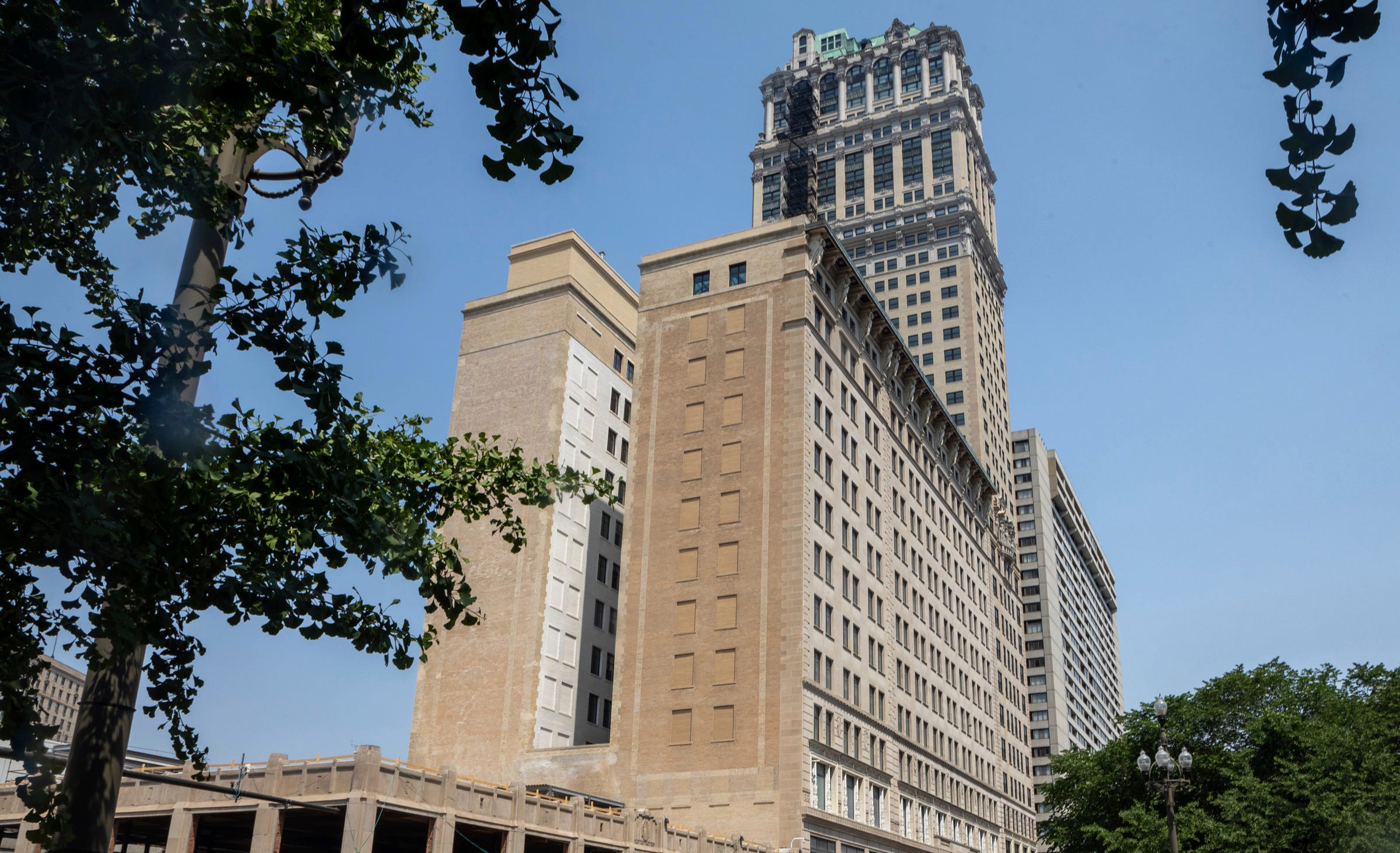The real estate developer Bedrock has publicly defended its use of taxpayer subsidies for major projects in Detroit, following a lawsuit filed by the Free Press and the Mackinac Center for Public Policy. The lawsuit seeks the release of reports from the Michigan Department of Treasury that would identify businesses and the number of new employees at Bedrock’s downtown developments, including the Hudson’s building, the Book Tower, and One Campus Martius.
In a recent opinion piece, JC Reindl of the Free Press highlighted the ongoing legal dispute over Bedrock’s Transformational Brownfield Plan. Bedrock, however, has stated that it learned about the lawsuit through media reports and does not have a position on the legal matter. Instead, the company wants to address the concerns raised by the Free Press regarding job growth at its sites.
Reindl suggested that the new office spaces created through Bedrock’s developments have not yet attracted new tenants, casting doubt on the validity of the incentives provided. Bedrock countered this notion, arguing that such claims are based on outdated premises. The company pointed out that the COVID-19 pandemic significantly disrupted the office market, leading to a national net leasing activity that was negative in 18 of the last 20 quarters. Presently, there is approximately 1.1 billion square feet of vacant office space across the United States, with Metro Detroit experiencing a negative net absorption of 370,000 square feet in the most recent quarter.
The shift towards hybrid and remote work has prompted lawmakers in Michigan to reform the brownfield program. Originally focused on creating new office jobs, the program now emphasizes the development of vibrant mixed-use communities. In 2023, the state legislature recognized the need for downtown areas to evolve from being solely business districts to integrating residential, shopping, dining, and entertainment spaces. This transition was facilitated by the inclusion of sales tax reimbursements in the brownfield program, allowing for a broader range of development projects.
In response to these changes, Bedrock submitted an amendment to its Transformational Brownfield Plan, which was approved in February 2024. Under the amended plan, taxes from sources beyond office jobs now account for virtually the entire approved reimbursement amount, making comparisons to past office job estimates irrelevant.
A crucial point raised by Bedrock is the measurement of the return on the state’s investment in these projects. The company asserts that its initiatives will yield significant benefits for Detroit and Michigan as a whole. Bedrock is projected to invest over $2 billion in its key developments, including the Hudson’s Detroit, the award-winning Book Tower, and the One Campus Martius expansion. The annual reimbursement from the state is anticipated to constitute only 0.6% of the total investment Bedrock will make upfront, exemplifying a model of effective public-private partnership.
Beyond financial implications, the transformative nature of these projects is noteworthy. Bedrock anticipates the creation of hundreds of new local jobs in hospitality, retail, and restaurants, while also fulfilling the demand for hotel accommodations in the area. Notably, both The New York Times and Travel + Leisure have recognized Detroit as one of the best places to visit globally, citing projects like the spectacular Book Tower as attractions that are enhancing the city’s profile.
The commitment of Bedrock’s founder and chairman, Dan Gilbert, is also a focal point in this discussion. Gilbert’s philosophy prioritizes long-term community benefits over immediate profits. He has emphasized that the financial returns from projects like Hudson’s will not materialize until far into the future. “… there won’t be a profit (in Hudson’s) until after you all are grandparents,” he noted, underscoring the focus on sustainable development rather than short-term gains.
While Bedrock respects the role of the media in holding companies accountable, it remains confident in the positive impact of its transformational projects and the public-private partnership that has facilitated their development. The company believes that these initiatives will not only reshape the physical landscape of Detroit but also contribute to the city’s economic revival and long-term vitality.
